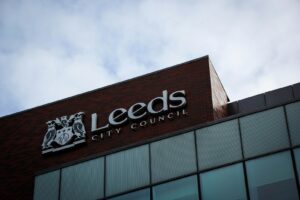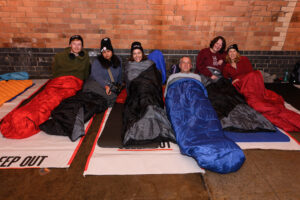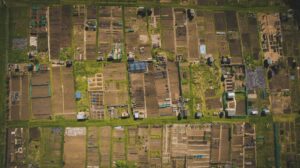More than 50,000 refugees could be made homeless by the end of the year if the government doesn’t take urgent steps to support them as it clears the asylum backlog, the British Red Cross has warned.
The government has pledged to process all ‘legacy’ asylum applications made before 28th June 2022 by the end of the year.
Based on the number of people living in asylum accommodation, and their dependents, the British Red Cross has published new projections on the number of people at risk of homelessness.
It estimates that 53,100 refugees will be at risk of homelessness if the government clears the backlog – and even if decision-making on asylum claims isn’t sped up and the target not met, 26,000 people could still be at risk of destitution and homelessness.
The 28-day ‘move-on’ process – the time given to refugees to move from asylum support to mainstream benefits or employment – recently changed, leaving some people with as little as seven days to move out of their asylum accommodation. The charity warned this could lead to devastating levels of destitution.
The British Red Cross called on the government to:
- Immediately reverse changes to the move-on process to prevent thousands of people from spiralling into destitution
- Extend the move-on period to 56 days to allow more time for newly-recognised refugees to find housing, employment or benefits
- Take a joined-up approach with local authorities to ensure refugees are not left on the streets
Alex Fraser, British Red Cross director for refugee support, said: ‘People who have been forced to flee their homes have already experienced unimaginable trauma. They need stability, support and to feel safe – making people destitute only causes more distress and hardship.
‘Once they get refugee status, they need more time, not less, to find housing, work or benefits. It takes at least 35 days to start getting Universal Credit and local authorities need at least 56 days to help them find accommodation.
‘Extending the move-on period would give refugees the support they need as they start to rebuild their lives.’
The new analysis comes as the charity faces rising demand for support from people who have been recently granted refugee status.
Since the changes to the ‘move-on’ period at the beginning of August, British Red Cross Refugee Services have seen a 140% increase in destitution for people they support with refugee status, from 132 people in June and July to 317 people in August and September.
They are having to hand out sleeping bags and tents to people who are facing life on the streets and support people who are feeling suicidal. At least one man has had all of his possession stolen while sleeping rough.
London, North West England and Glasgow have particularly high numbers of people in asylum accommodation at risk of destitution, as well as high housing pressures.
Image: Nick Fewings
Young adult carers are on the brink of homelessness, experts warn
Government scraping the ‘bare minimum’ to tackle homelessness, charities warn

















Leave a Reply